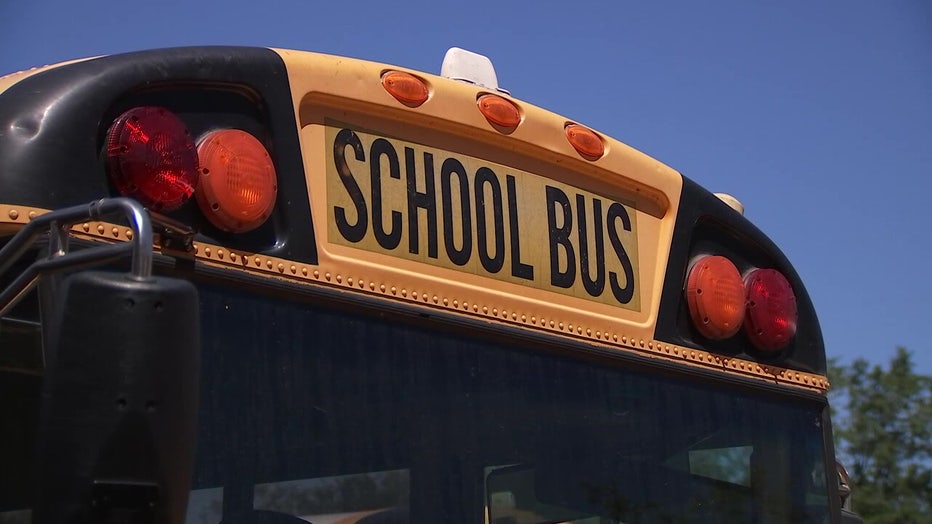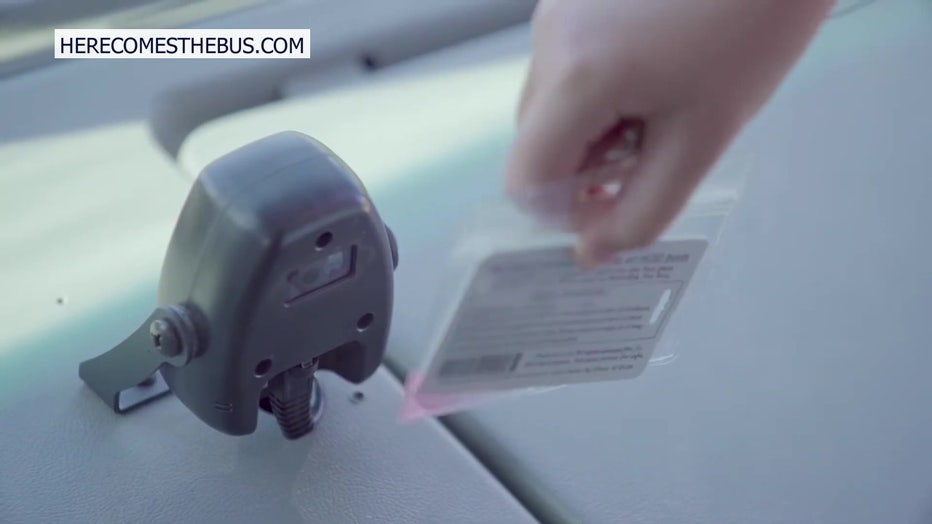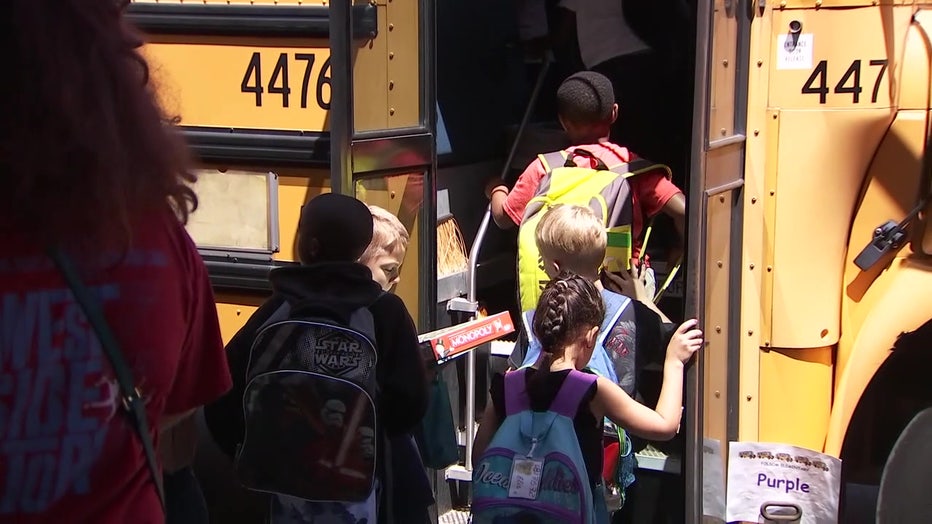Some Hillsborough parents not on board with new school bus tracking app
TAMPA, Fla. - Every year school districts across the Bay Area struggle to get students to school on time. To help parents and students plan around the delays, Hillsborough County Public Schools will roll out new technology this Fall that allows parents to track their child's bus using the Here Comes the Bus app.
"The Here Comes the Bus app, gives them real-time information to let them know where that bus is and just allows us to have better transparency and communication with our community," explained Superintendent Addison Davis during a school board meeting where he introduced the app to board members last Fall.
As the school year approaches, not every parent is on board. Several parents in Hillsborough County have concerns over data privacy and the ability for the schools, app makers or even hackers to track their children.
"We don't want their private information, our locations, addresses, places they visit to be out there," said Hillsborough parent Marianne Gonzales.

Others question why the district, which will ask voters this Fall to approve an increase on their property taxes in order to help fund schools, is spending nearly $1 million on a tracking app instead of using that money to hire more drivers.
RELATED: Hillsborough County Schools want voters to decide on property tax increase to fund education
"I understand the district wants to communicate with parents better because our children have been consistently late to school, not for any other reason, except we are not properly funding our public transportation to public school," said Hillsborough parent Josephine Amato. "Why are we doing it differently than utilize the system that we're using now that has a GPS system on it?"
For years, Hillsborough parents have been able to track their child's bus location using a GPS tracking system installed inside the district's school buses. The district said that system, which ran on 2G technology, is obsolete.
They've now upgraded to a 4G system and have contracted with Here Comes the Bus for tracking service. The app works by using Radio Frequency Identification (RFID) chips embedded in student bus ID cards. When a student scans their rider card on a bus, parents will be able to use the app to watch their child's movement to and from school.
"The technology is similar to a boarding pass on a plane and is particularly helpful for parents of our younger students if they happen to get off the bus at the wrong stop or in times of inclement weather or heavy traffic along the route," the district wrote in a statement.

Unlike a device like a Tile or phone, which can broadcast a signal at any time, the tracking technology used by apps like Here Comes the Bus is limited.
"It is a passive controller," explained tech expert and CEO of Sourcetoad Greg Ross-Munro. "Without actually being a couple of millimeters away from the reader, it's not going to do any good."
In a statement the Hillsborough County School District explained card readers will only be located inside school buses, so a student’s card will not be tracked beyond the buses' doors.
According to the app's creator, Synovia, no identifiable information about the students will be linked to their bus cards.
But parents like Amato said they're worried about a much bigger scope, like where a child or parent user's data is going, and who could end up with it, whether through a data breach or a sale of data.
PREVIOUS: Hillsborough, Pinellas districts hope to fill hundreds of open positions before start of school year
"This is the government tracking your child and then allowing a company to have that data," said Amato.
The district said parents will be able to opt out of using the system, but students will still need to enter their student ID’s when boarding a school bus.
"While we encourage all children to wear their RFID for safety reasons, a child is not required to wear the Ridership card," the district said. "The district will still enter each bus rider into the GPS system manually for the child's safety, so we know who is on each bus in the event of an incident or if a child gets off at the wrong bus stop."
Ross-Munro recommends parents to reach out to app makers to find out more about how data will be stored and how robust the company's security system protecting that data is.

"I think that they should be asking the company what kind of measures they have in place to prevent data breaches. That's actually probably more concerning than being able to track somebody using their card," said Ross-Munro, who also cautions parents to take a closer look at the types of apps their children download.
According to Ross-Munro, several popular gaming apps track and sell private information of users. Some even text spam or phishing links that can lead to major personal data breaches.
"I would probably ask parents to look what kind of apps their kids have on their phones already. Those are a bigger source of concern to me than something that is going to be provided by a specialized provider who is being vetted by the school board, who has to comply with federal regulations. The kind of things that your kids download on their phones are way more concerning than something that hasn't gone through a vetting process like this," said Ross-Munro.
On Thursday from 6 to 7:30 p.m. the district will hold a Town Hall meeting at Newsome High School in Lithia where parents plan to address the superintendent with their concerns.


